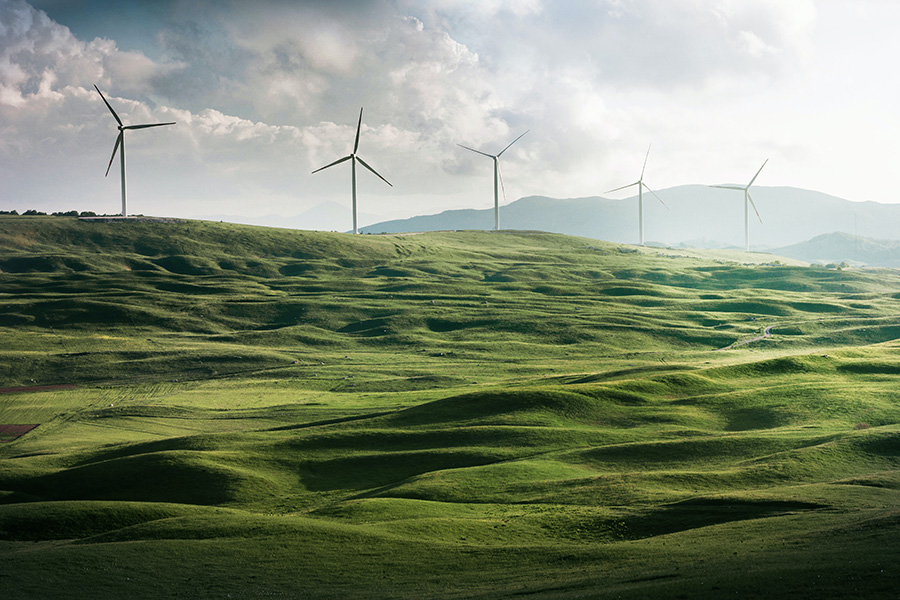
Using AI Towards a Cleaner Energy Future: Building Hope Closing Event
On July 14th, the CMU Portugal Large Scale Collaborative Project “Building Hope” concluded its journey with a closing session. This online event brought together more than 50 participants to discuss the project’s latest advancements in energy management.
Funded through PT2020 and FCT under the CMU Portugal Program, Building HOPE – Building Holistic Optimization of Prosumed Energy – aimed to revolutionize energy management practices in smart urban environments. The project focused on the development and validation of an innovative tool known as Holistic Optimization of Prosumed Energy (HOPE) specifically designed for buildings. By leveraging cutting-edge technologies such as data collection, sensing advancements, and AI-based methodologies, the project aimed to pave the way toward a cleaner and more sustainable energy future. The potential impact of such advancements on smart urban environments is immense.
The session was moderated by Ana Luísa Pereira, Innovation Manager at dstsolar, and kicked off with an opening by Sílvia Castro, CMU Portugal Executive Director. Sílvia provided insight into the Program’s overall activities and the significance of the Large Scale Projects initiative, which has proven to be impactful in various ways. Building Hope was one of the 12 flagship projects selected under the 2018 competitive Call launched by COMPETE 2020, ANI, and FCT under the GO PORTUGAL initiative that was concluded in June 2023.
Mauro Costa, R&D Project Manager at dstsolar, took the stage and delivered a presentation, providing a comprehensive overview of Building Hope’s primary objectives, team achievements, and key responsibilities. The project was led by dstsolar in collaboration with WATT-IS, InnovationPoint, S.A., Instituto Superior Técnico, Universidade de Coimbra, and the Electrical Engineering Department at Carnegie Mellon University.
Together, this consortium of expertise and knowledge has driven Building Hope toward its goal of revolutionizing energy management practices in smart urban environments. The HOPE platform has been extensively tested throughout the project in diverse contexts, including industrial, office, and retail buildings. These real-world trials have been instrumental in not only validating the platform’s capabilities but also showcasing its innovative features and the significant impact it can have on energy management.
To present the developed models, Henrique Pombeiro from the partner company Watt.IS focused on the outcomes of using data analytics with the presentation “Smarter and more efficient buildings through data analytics: contributions of load forecasting and non-intrusive disaggregation of consumption”. The use of data analytics has proven to be a powerful tool in optimizing energy consumption and improving overall efficiency. Next, Carlos Santos Silva from Instituto Superior Técnico took the stage and delved into his team’s contributions, presenting “Flexibility, Performance, and SmartContracts: New services in intelligent building management.” His presentation focused on three critical aspects of the project: estimating hourly flexibility, predicting asset performance, and evaluating smart contracts. These focus areas are key to unlocking the full potential of smart urban environments and ensuring energy optimization. From Universidade de Coimbra, Ehsan Asadi delivered a compelling presentation entitled “Optimization of energy efficiency in buildings through the integration of flexibility resource integration.” This presentation showcased how integrating flexibility resources into building management can significantly enhance energy efficiency, making strides toward a greener and more sustainable future.
Finally, Ricardo Lopes, representing InnovationPoint, provided an in-depth exploration of the HOPE platform during his presentation. He highlighted the platform’s main features and showcased its overall performance.
According to the project PI from dstsolar, Ana Luísa Pereira “participating in this project was extremely important. It opened up the possibility for us to explore different areas with partners, valuing our investment in digital research projects associated with transition and energy efficiency. The cooperation between the teams of the different partners (dstsolar, Watt.IS, IST, UC and CMU) was enriching and allowed us to explore data processing and the interconnection of different areas of knowledge. We believe that these initiatives centered in the cooperation between entities of the academic and scientific system with companies, are essential for the development of new technologies and really innovative products.”
Giving a look into the project main outcomes, Ana Luísa Pereira refers that “the main advantage of the HOPE platform is that it is a tool to help reduce energy consumption in service, commercial or industrial buildings. During the project, a functional prototype of the platform was developed, but it will still be necessary to continue the development to reach a market-ready version. We are aware of the added value of this platform and its perfect alignment with dstsolar’s business strategy.”
To conclude the session, the Building Hope consortia expressed their gratitude to SONAE, a prominent Portuguese multinational company that played a vital role in the project’s success. SONAE’s support involved providing their buildings for extensive testing, allowing the project to flourish and achieve its objectives.
Catarina Nunes Soares, representing SONAE, took a moment to reflect on the impact of Building Hope on the company. She emphasized that the project had been a transformative experience, providing invaluable insights into the practices that can drive energy efficiency and sustainability within their facilities. The knowledge gained through this collaboration will not only enhance SONAE’s current buildings but will also inform the construction of future structures, ensuring a more eco-conscious approach.
As the session unfolded, it became evident that Building Hope’s journey has not only been one of innovation but also a testament to effective collaboration and the pursuit of positive change. The collective achievements of this project will undoubtedly serve as a beacon for future initiatives seeking to create a lasting impact on energy management and sustainability.
The Building Hope – Building Holistic Optimization of Prosumed Energy – project is co-financed by the European Regional Development Fund (ERDF) through the Operational Program for Competitiveness and Internationalisation (COMPETE 2020) and by the Portuguese Foundation for Science and Technology (FCT) under the CMU Portugal Program.